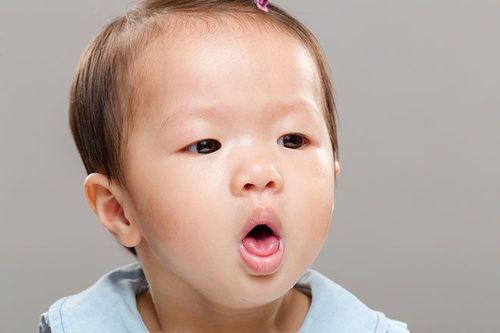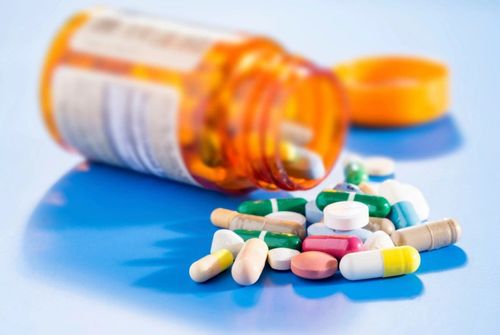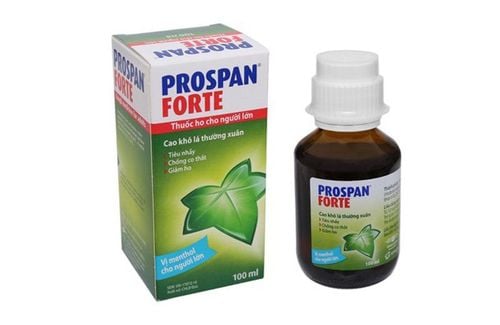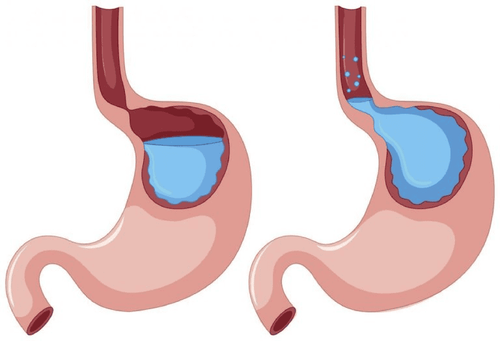This is an automatically translated article.
Using antibiotics with the wrong kind will not help and may even cause more harm. Because antibiotics are drugs used to treat infections, and they target bacteria, not viruses. Therefore, children with cough do not arbitrarily use antibiotics, especially antibiotic cough medicines that are easily accessible because they are widely available in the market when parents need to find cough medicine for their children.
1. The child has a very severe cough and cold, so why not use antibiotic cough medicine?
Colds are caused by viruses. In general, most common cold symptoms, such as a runny nose, cough, and stuffy nose are mild and a child gets better without treatment.
Many young children, especially those in daycare, get coughs and colds 6 to 8 times a year.
Because antibiotics fight bacteria, not viruses. If your child has a bacterial infection, antibiotics may help. But if the child has a viral infection, antibiotics will not help the child feel better, but also face the risks of indiscriminate use of antibiotics.
In contrast, when a child has a cough due to a flu infection and then a bacterial superinfection, antibiotics may be needed. However, in most cases, a bacterial infection is not followed by a viral infection. In addition, children may experience diarrhea or other side effects when taking antibiotic cough medicine.

Thuốc ho kháng sinh không nên tự ý sử dụng cho đối tượng trẻ nhỏ
2. When does a child need an antibiotic cough medicine?
“When a child needs antibiotic cough medicine” is when the child has evidence of a bacterial infection and is determined by a doctor. However, in order to give medicine to the child in time to give the best control of the disease, parents should ask a doctor if these cases occur:
The child's cough does not improve in 14 days develop symptoms of a sinus infection that do not improve for 10 days, or have them improve and then get worse Child has a cough, runny nose and high fever for several days in a row When used When antibiotics are appropriate and indicated, most bacterial infections will improve within 48 to 72 hours of starting treatment. If your child's symptoms get worse or do not improve within 72 hours, call your child's doctor. Conversely, if a child stops taking antibiotics too soon, the infection may not be completely treated and symptoms may start again.
3. Will antibiotic cough medicine cause any side effects for the child?
1 in 10 children are given antibiotics. Side effects when giving antibiotic cough medicine to children can include rash, allergic reactions, nausea, diarrhea, and upset stomach. Be sure to let the child's doctor know if the child has had a reaction to an antibiotic in the past.
Sometimes a rash will appear while the child is taking antibiotics. However, not all rashes are considered allergic reactions. Therefore, parents need to monitor closely when giving their child antibiotics for cough and tell the child's doctor right away if a rash looks like hives - this could be an allergic reaction. If a child has an allergy that causes an itchy rash or hives, this will be recorded in the child's medical record to note for future medication use.
In addition, antibiotics also have many other risks to the health of young children. It is the side effects of antibiotics when used indiscriminately that are the common reason why children go to the emergency room, not because of a medical condition. Many antibiotics for coughs can cause diarrhea or vomiting, and about 5 out of 100 children are allergic to them. Some of these allergic reactions can be serious and life-threatening.
On the other hand, general overuse of drugs and overuse of antibiotics will encourage bacterial strains to change, so that the drugs will not work effectively to eliminate them (called antibiotic resistance). When bacteria become resistant to the drugs used to treat them, the infection is not only uncontrolled, but it is also easier to spread. Antibiotic-resistant infections are also more expensive and harder to treat. Thus, if a child has an antibiotic-resistant infection, a special antibiotic may be needed; Sometimes these drugs need to be given intravenously and done in a hospital.

Thuốc kháng sinh trị ho cho trẻ cần dùng theo chỉ dẫn của bác sĩ
4. How can parents safely use antibiotics for coughs in children?
In order for parents to be able to safely use antibiotics for coughs in children, it is essential that they be used only when prescribed by a doctor, and at the same time, parents also need to adhere to the following principles:
Give medication exactly as directed about times and doses Do not give a child's antibiotics to a child's siblings or friends; Giving the wrong medicine not only won't cure the illness, it can also harm your child Keep antibiotics and other prescriptions in a safe place. Count and monitor the number of pills carefully. Ask friends, family members, and babysitters to stick to this rule. Throw away leftover antibiotics and other prescription medications; return leftover prescriptions to the hospital, doctor's office, or pharmacy. In short, if a child has a cough, sore throat, or runny nose, many parents may expect the doctor to prescribe an antibiotic for the cough. But in most cases, the cause is a virus, and children don't need antibiotics to treat a general respiratory illness. In fact, antibiotics can also do more harm than good. Therefore, parents only use cough medicine for children containing antibiotics when prescribed by a doctor to control the disease most effectively and still ensure the safety of the child.
Follow Vinmec International General Hospital website to get more health, nutrition and beauty information to protect the health of yourself and your loved ones in your family.
Please dial HOTLINE for more information or register for an appointment HERE. Download MyVinmec app to make appointments faster and to manage your bookings easily.
References: choosingwisely.org, healthychildren.org, jamanetwork.com












